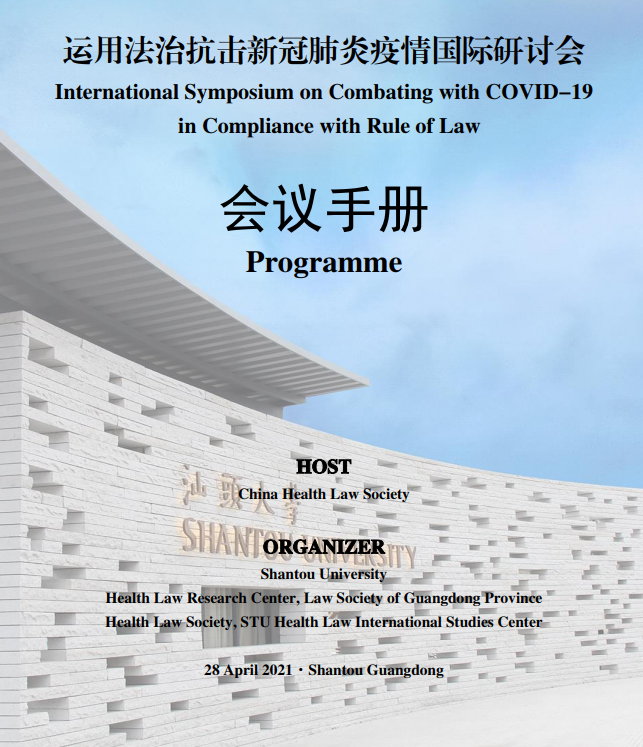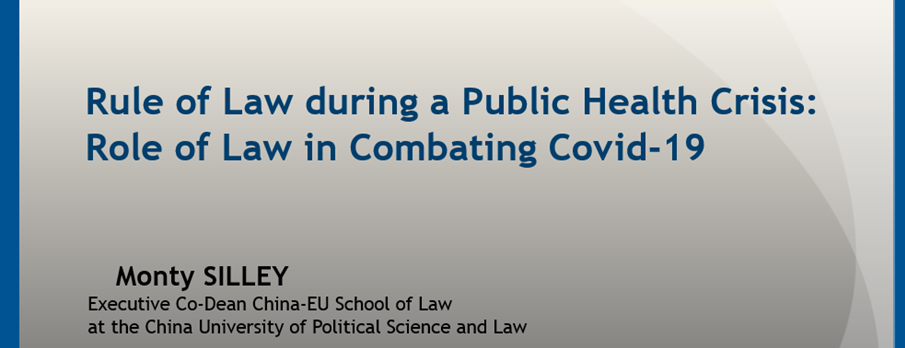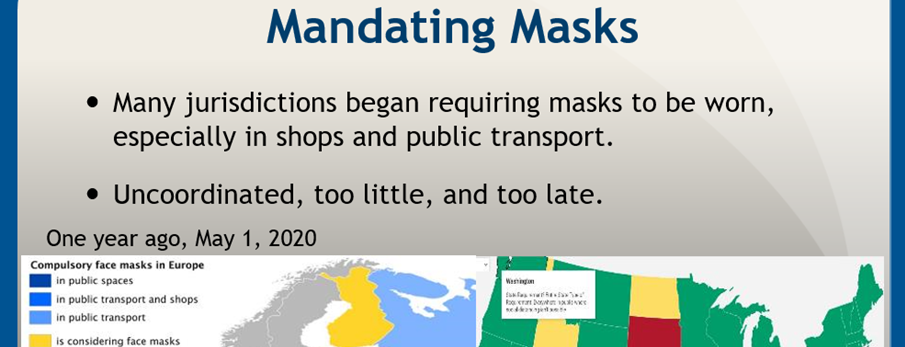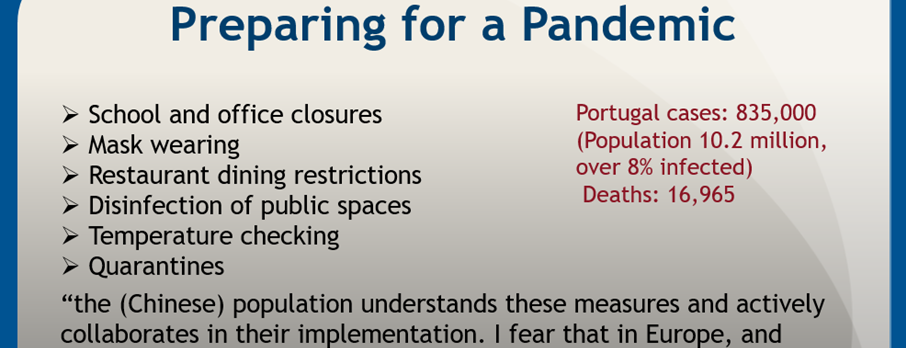On 28 April 2021 the “International Symposium on Combating COVID-19 in Compliance with Rule of Law” was held. The event was hosted by the China Health Law Society and co-organized by Shantou University, along with the Health Law Research Center, the Law Society of Guangdong Province Health Law Society and STU Health Law International Studies Center.

Ronald Monty Silley, Executive Co-Dean of the China-EU School of Law at the China University of Political Science and Law was invited to give a presentation at this conference. It dealt with the experiences of combating Covid-19 in compliance with the rule of law from different countries, combating Covid-19 and public health governance, as well as combating Covid-19 from the legal perspective with global public health provisions. Approximately two dozen notable experts spoke at this international conference, taking place both at Shantou University in China, as well as broadcast online.
Dean Silley’s speech was on “Rule of Law during a Public Health Crisis: the Role of Law in Combating Covid-19”. The session was chaired by Shilin Du, Secretary General of Health Law Research Center, the Law Society of Guangdong Province and General Manager of the Southern Medical University Hospital Management Company. Afterwards, Qun He, Vice President of Public Health Institute of Guangdong Province and Professor Hongjie Man, Vice-Dean of Shandong Univeristy Law School gave comments on Dean Silley’s presentation.

In his speech, Dean Monty Silley first discussed issues around the wearing of masks, including points of misinformation that arose around mask wearing over the past year. He noted the surprising disagreement between various officials and politicians around the world regarding the benefits of wearing facemasks. This made it somewhat controversial to impose mask-wearing requirements in some places, which have been met with resistance and even protests in various jurisdictions. However, if there are supply issues that political leaders were trying deal with in initially discouraging masks, they could have used various other legal tools at their disposals. For example, imposing purchasing limits, anti-hoarding rules, expropriating urgently needed supplies for hospital workers and first responders, as well as even using legal mechanisms to require industries to ramp-up production as was done with the U.S. Defense Production Act.
While anti-maskers continue to flout rules with sometimes little legal consequences, an analogy was made to the legal requirements of wearing a seatbelt or bicycle helmet in different countries. In the case of facemasks however, the beneficiary is not only the wearer, but also all third party bystanders, as well as the society as whole in terms of reducing the spread of the virus. Therefore, there is reasonable legal justifications to impose mask-wearing requirements in conformity with science, for example when entering shops or taking public transit, during such unusual times.

Next, Dean Silley addressed harder questions, regarding mandatory social distancing, shut downs and quarantines. The laws in Europe and North America must take into account certain human rights like the freedom of movement and assembly. On the other hand, Mr. Silley pointed out the most basic rights are those to life and safety. Where the right to publicly protest in person puts at risk people’s right to health and wellbeing, this can justify the government taking reasonable actions, again, to prevent the spread of a deadly virus.
Quoting Aristotle, that people are social animals, he acknowledged the difficulties in imposing extensive lockdowns, both economically as well as socially and pszchologically. On the other hand, uncoordinated, late and partial lockdowns have shown to only partially work. As soon as they are lifted, a new wave of infections emerges and the death toll correspondingly rises. Therefore, it is crucial that the law responds in a proportional manner to any public health danger. However, where there is a good scientific basis to show that a deadly virus imposes an imminent risk, legal systems should be capable of taking preventative measures, even before an official pandemic is declared. By that point, it becomes exponentially harder to isolate, track and stop the spread of such a virus.
Here, China has shown how it is indeed possible to eliminate local community infections, if there is willingness by all members of the community to conscientiously cooperate in battling the virus. Some short term pain, in terms of pausing business activities, socially isolating oneself, or even quarantining, may result in much greater long-term gains, as enterprises can fully reopen sooner and people can largely resume normal life again afterwards. Here, Dean Silley pointed out the value of learning from each other. Different countries have responded to Covid-19 in very different ways. We see now the successes and failures that these different policies have had. Lawmakers around the world must look around and adopt best practices.
As a final point, an excerpt from an op-ed article in the leading national Portuguese newspaper Publico was shared. In the article, Mr. Ronald Silley discussed the various measures China was taking to combat the virus in February 2020. He clearly wrote that “the (Chinese) population understands these measures and actively collaborates in their implementation”, and went on to state, “I fear that in Europe, and particularly in Portugal, people and the government have not yet realised the seriousness of the situation. The government must, without alarmism, alert the country to the seriousness of the situation and make some basic recommendations that can mitigate the number of cases that, I fear, will inevitably arrive.” This article was written and submitted already in February 2020, and published on 1 March, 2020. At that time, Portugal had not reported a single case of Covid-19 yet. Unfortunately, Mr. Silley’s prediction came true, just as no substantial legal or political actions were taken. Looking back now, approximately 8% of the Portuguese population has caught the virus so far, directly leading to over 17,000 Portuguese deaths, which is truly tragic.

Dean Ronald Monty Silley concluded by reminding the audience that this was not the last pandemic humanity will have to face. It is possible that the next one may be even more contagious or more lethal. Therefore, it is essential that we also learn from our experiences fighting Covid-19 now and ensure all our societies are better legally prepared to deal with the next public health crisis.
